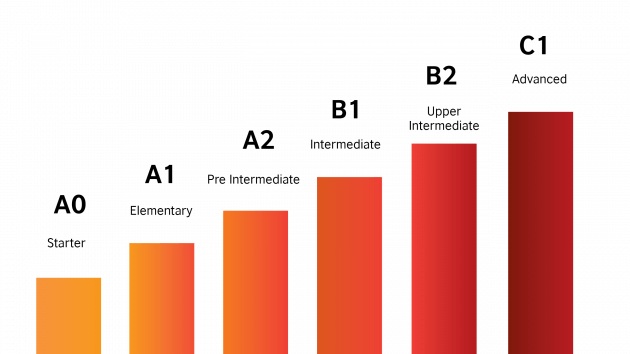10 Common English Words Borrowed from Other Languages
English Words Borrowed from other Languages Modern English words, as we know them, have an interesting background. So where do so many of the...
Flexible group courses for everyday communication and fluency.
Academic EnglishPrepare for university study with advanced academic language skills.
Business EnglishEnglish for professional communication in corporate and workplace settings.
Private LessonsOne-to-one lessons tailored to your goals, schedule and interests.
Language ExcursionsLearn English while exploring Cape Town with your teacher as your guide.
Get the score you need with targeted strategies and expert support.
Cambridge ExamsPrepare for the FCE or CAE with structured, high-quality training.
TOEFL PreparationBuild confidence and test skills to succeed in the TOEFL exam.
Personalised one-to-one English lessons delivered online, on your schedule.
Corporate GroupsLive online training for teams, customised to your organisation’s needs.
English for Tech ProfessionalsSelf-paced English course designed for developers, engineers, and IT teams.
Qualify to teach English in South Africa or abroad with this practical course.
Blended Certificate in TEFLCombine online study with hands-on classroom experience in Cape Town.
Learn in a historic university campus right in the city centre.
Tours and ActivitiesExplore Cape Town and make friends through weekly excursions.
Social ProgrammeJoin our schedule of fun events, outings and conversations.
Getting AroundTips and tools for navigating the city like a local.
Social and DigitalStay connected online and through our vibrant student community.
A friendly, sociable student house just a short walk from school.
Adderley StudiosModern, secure apartments in the heart of Cape Town.
HomestayLive with a local family and experience South African culture.
Hotels & AparthotelsIndependent options for comfort, privacy and flexibility.
All tuition and accommodation fees in one clear table.
Booking InformationWhat to expect before, during and after you book.
Instalment PlansFlexible payment options for long-term bookings.
User LoginView your bookings, make payments, and manage your details.
Visa options and support for international students coming to South Africa.
Insurance & TravelWhat you need to know about travel, insurance and staying safe.
MyELC AppAccess your timetable, progress and more on the student app.
Arrival and OrientationHow we help you settle in on your first day in Cape Town.
How to request certificates, transcripts, or proof of enrolment.
Terms & ConditionsThe small print — bookings, cancellations, and more.
Contact UsGet in touch with the ELC team by email, phone or WhatsApp.
Privacy PolicyHow we protect your data and respect your privacy.
What makes ELC and UCT a great place to learn English.
About the University of Cape TownSouth Africa’s leading university and home to the ELC.
About the English Language CentreWho we are, what we offer, and how we teach.
Our TeamMeet the teachers, support staff and leadership team behind ELC.
Our international quality standards and endorsements.
Media & PressNews coverage, interviews and media mentions of ELC.
TestimonialsWhat our students, partners and teachers say about us.
BlogUpdates, stories and insights from the ELC community.
Flexible group courses for everyday communication and fluency.
Prepare for university study with advanced academic language skills.
English for professional communication in corporate and workplace settings.
One-to-one lessons tailored to your goals, schedule and interests.
Learn English while exploring Cape Town with your teacher as your guide.
Get the score you need with targeted strategies and expert support.
Prepare for the FCE or CAE with structured, high-quality training.
Build confidence and test skills to succeed in the TOEFL exam.
Personalised one-to-one English lessons delivered online, on your schedule.
Live online training for teams, customised to your organisation’s needs.
English for Tech Professionals
Self-paced English course designed for developers, engineers, and IT teams.
Qualify to teach English in South Africa or abroad with this practical course.
Combine online study with hands-on classroom experience in Cape Town.
Learn in a historic university campus right in the city centre.
Explore Cape Town and make friends through weekly excursions.
Join our schedule of fun events, outings and conversations.
Tips and tools for navigating the city like a local.
Stay connected online and through our vibrant student community.
A friendly, sociable student house just a short walk from school.
Modern, secure apartments in the heart of Cape Town.
Live with a local family and experience South African culture.
Independent options for comfort, privacy and flexibility.
Use our Course Wizard to match your goals and level to the best option
Course WizardAll tuition and accommodation fees in one clear table.
What to expect before, during and after you book.
Flexible payment options for long-term bookings.
View your bookings, make payments, and manage your details.
Visa options and support for international students coming to South Africa.
What you need to know about travel, insurance and staying safe.
Access your timetable, progress and more on the student app.
How we help you settle in on your first day in Cape Town.
How to request certificates, transcripts, or proof of enrolment.
The small print — bookings, cancellations, and more.
Get in touch with the ELC team by email, phone or WhatsApp.
How we protect your data and respect your privacy.
What makes ELC and UCT a great place to learn English.
About the University of Cape Town
South Africa’s leading university and home to the ELC.
About the English Language Centre
Who we are, what we offer, and how we teach.
Meet the teachers, support staff and leadership team behind ELC.
Our international quality standards and endorsements.
News coverage, interviews and media mentions of ELC.
What our students, partners and teachers say about us.
Updates, stories and insights from the ELC community.

Table of Contents
When it comes to language, one can never have too many words. According to BNC (British National Corpus), the English language has over 100 million words, both spoken and written. I think that I can honestly say that no native speaker will know all of the words registered in the BNC, so how many words do we need to know? Better yet, how many words do our foreign learners need? Thornbury (2002) mentions that students need approximately:
• Between 1,000 to 2,000 high-frequency words for basic conversation and everyday texts.
• More or less 8,000 words for advanced conversation.
• In the region of 10,000 to 20,000-word families (excluding fixed phrases and expressions) to read at a university level.
That is a whole lot of words to learn and remember. Luckily, it is safe to say that as a teacher, I do not expect students to remember the exact meaning of 10,000 words, however, I do encourage students to make an effort to be more aware of word families. The reason for this is that when a student sees it in a text or hears it in a conversation, they should be able to guess the meaning from context rather than breaking themselves over one word they didn’t recognise. After all the primary purpose of language is communication.
Therefore students and teachers alike should encourage students from a low level to start recording vocabulary correctly. Personally, I like to use a word family table.
| Word | Noun | verb | Adjective | Example sentence |
| Help | helper | help | helpful | I help my mum cook dinner. |
| Play | Player | play | playful | The dog is playful. |
The table can be changed according to level by adding more columns, for example prefixes and suffixes, synonyms etc.
Practice: Teachers should encourage students by giving them a weekly (achievable) target of vocabulary. It can be vocabulary from a course book or vocabulary that pops up in class. If students are not aware of using a dictionary, it can make a good lesson to teach students on how to use a dictionary.
It is important to recycle vocabulary, so try to do some informal exercises where students have the opportunity to use the vocabulary at least once a week. I find that a board race or spelling Bee works, and students find it very competitive and fun.
Good luck and happy learning!
Tiaan
Resources:
British National Corpus (BNC)
Thornbury, S. (2002), How to teach Vocabulary, Pearson and Longman

English Words Borrowed from other Languages Modern English words, as we know them, have an interesting background. So where do so many of the...

Moving to the Next English Level Many of the students who come to study English with us at the UCT English Language Centre are interested in going...

6 Reasons Why You Should Learn English Abroad English is one of the most widely spoken languages in the world. It is the language of international...